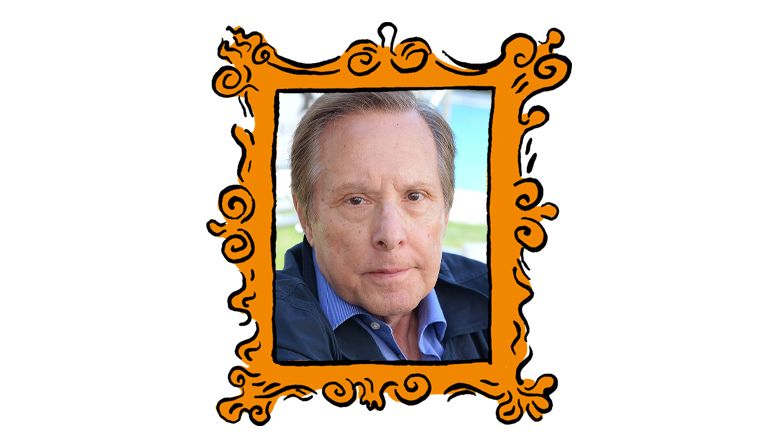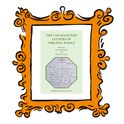When William Friedkin—a legend of American cinema, best known for directing The French Connection and The Exorcist in the 1970s—passed away this week, aged 87, the repsonses from the film world were almost universally full of praise and admiration. Luminaries such as Francis Ford Coppola, Guillermo del Toro and John Cusack took to social media to share fond and salty anecdotes about the gruff artist’s life and work. For a rare moment, albeit a sad one, at least one corner of the internet managed to achieve peace and warmth.
However, as much as I agreed with—and drew comfort from—all these sentiments, I couldn’t help but dwell on a spikier question: will we ever see the likes of William Friedkin in Hollywood again?
Let’s start with his most famous work, The Exorcist. Adapted in 1973 from William Peter Blatty’s bestselling novel about a tween girl, Regan, possessed by a demonic entity, the film—which remains a masterpiece of high tension, subliminal imagery and shocking violence—became Warner Brother’s highest-grossing up to that point, and created cultural shockwaves that reached the Vatican itself. It also became the first out-and-out horror film to be nominated for the Best Picture Oscar. So it’s understandable that it’s been the main event in all the obituaries this week.
But The Exorcist is really just a fractional part of Friedkin’s career, a career that delivered a number of stone-cold classics—from Cruising (1980), his controversial film about an undercover cop in the world of gay S&M clubs, to Sorcerer (1977), his existentially cool remake of French master Henri George-Clouzot’s The Wages of Fear.
Friedkin also influenced—and this is not an exaggeration—a whole generation of filmmakers with the tough dexterity of his The French Connection (1971), which followed a pugnacious, rotten cop, Popeye Doyle (Gene Hackman), as he patrolled the streets of a dilapidated New York City, and featured what is still often considered to be the best practically achieved car chase in movie history. Friedkin excelled at taut filmmaking, barely ever wasting a spare second; his films were all slickly edited, focused on the mechanics of action, physical gestures, narrative momentum.
He knew how to uncoil that momentum, too. Sorcerer, which concerns four exiled criminals driving a truckful of highly explosive nitroglycerine through unwelcoming South American terrain, could have been a straightforward thrillride. In Friedkin’s hands, however, it is steambath-sweaty with anxiety, full of unusual pauses as these men-on-the-lam sit around and wait. Friedkin may have known how not to waste time, but he also knew how to stretch it like taffy.
There is a persisentent canard that Friedkin’s best work belonged only to that post-Nixon era in the 1970s, when American cinema was as exciting as it had ever been, when countercultural masterpieces such as Serpico, Chinatown and The Last Picture Show were wrought. That’s wrong, of course. In 1985, his scorchingly cynical neo-noir To Live and Die in LA took aim at the materialism and hypocritical self-righteousness of the Reagan era. In 2011, his greasy Southern Gothic film Killer Joe, starring Matthew McConaughey, continued his fascination with the crooked cop.
It’s just that Friedkin’s fatalism belonged to a pre-blockbuster age. Indeed, it’s telling that, in 1977, Sorcerer was a mega-flop, not helped by its release on the same weekend as Star Wars. There are no guarantees of squishy feelings or happy endings in William Friedkin movies.
Of course, the American film industry has since become more, not less, Star Wars. The current cinematic era is defined by existing IP, putting us all on a merry-go-round of prequels and sequels and prequels again. It’s ever-so-familiar and ever-so-uninteresting, as Friedkin himself was eager to point out. He told Mark Kermode in an interview for Sight & Sound magazine in 2017: “Nowadays it’s unusual to see a film that’s disturbing or intense. Generally what you’ve got is a diet of cold oatmeal, which leaves critics and cinema-goers starved of a real experience of cinema.”
And it throws Friedkin’s style into sharp relief. His films were often scandalous or controversial, but forever grounded in emotional truth. No matter the subject matter—be it torn from the headlines or adapted from literary or stage material—Friedkin revelled in making the weird and the sensational meaningful, in forging a link between realism and genre filmmaking. He knew his Godard from his Fellini, but he wore his intellect and skill lightly, applying it to action thrillers, horror and thoroughly grown-up, complex drama.
I wonder who is out there who might take up his mantle—and am left drawing a blank.
Goodbye, William Friedkin
The director of ‘The French Connection’ and ‘The Exorcist’ has died—and, with him, a muscular kind of filmmaking too
August 10, 2023

© GuillemMedina / Wikimedia Commons











